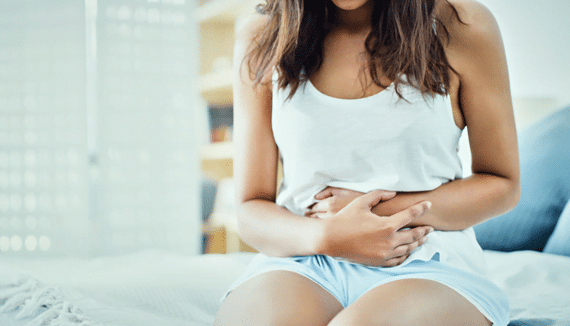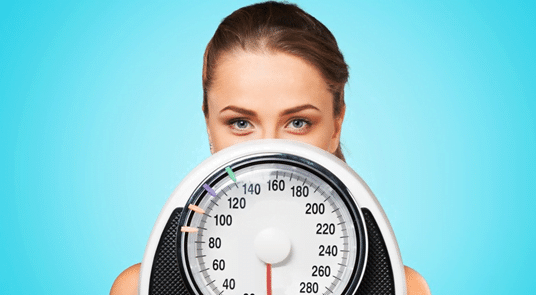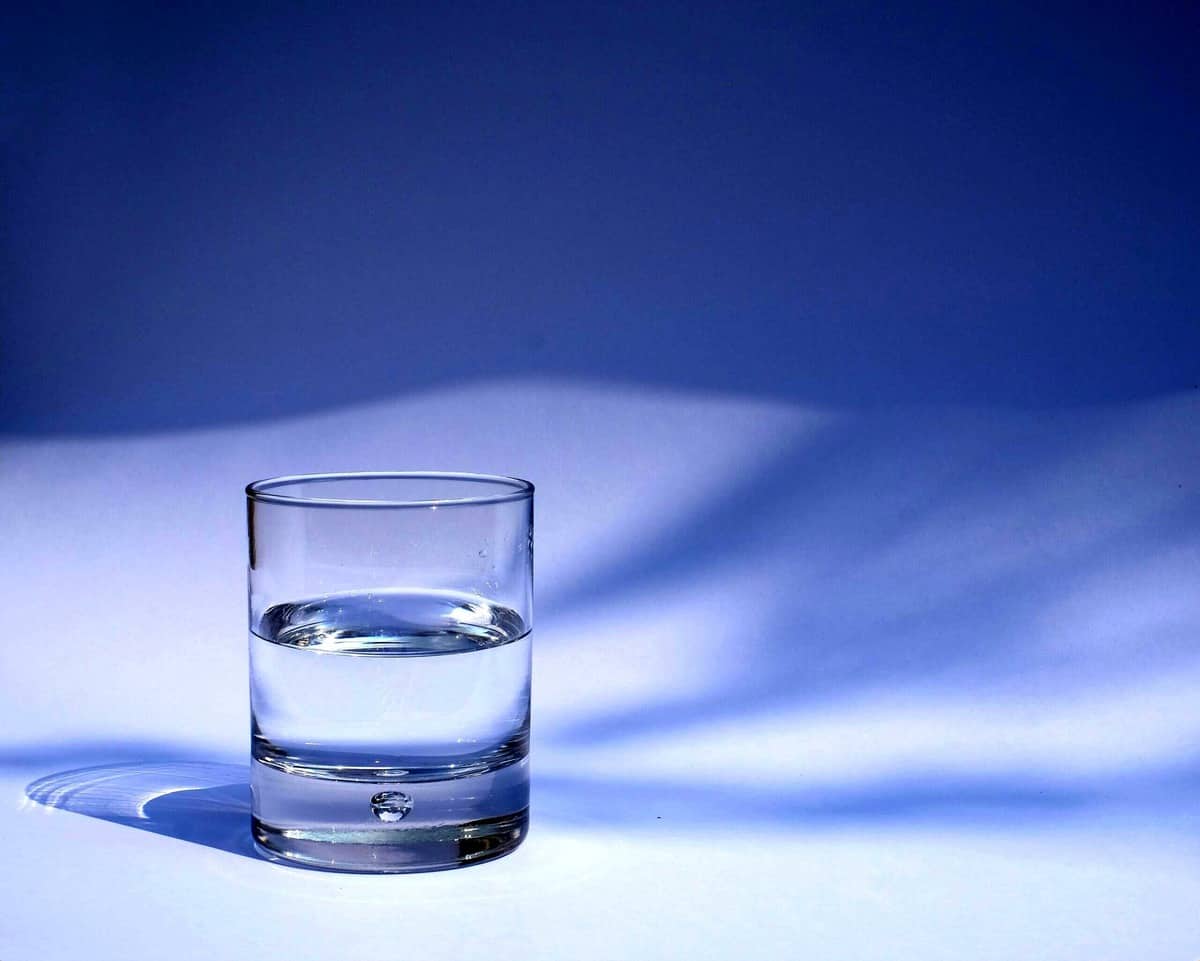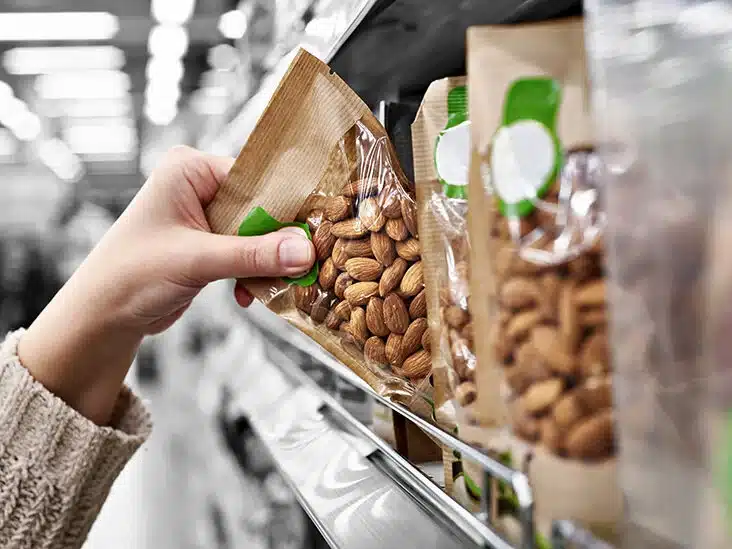Weight gain is a common side effect of periods. So, if you struggle with weight management during periods, we have you covered. ‘When does period weight go away?’ – Does that question bother you constantly? Worry no more!
We have prepared all the answers related to periods and weight gain. As we all know, hormone levels fluctuate during the menstrual cycle. It significantly impacts your emotional, mental, and physical well-being.
During menstruation, a woman’s body faces a lot of changes (including hormonal). It leads to changes in appetite, mood swings, water retention, acne, bloating, etc. Some changes, like appetite and water retention, result in weight gain.
And today, we will discuss everything about period weight gain, its reasons, how to prevent it, etc. The discussion will also include the answer to how long it takes for period weight to go away. So, let us dive deep.
What Changes in Your Body During Periods?

Period or menstruation occurs when your body releases unused blood and tissue build-up on the uterus lining. A typical menstrual cycle is 28 days. But it can also last anywhere from 24-38 days.
During this menstrual cycle, the upper lining of your uterus begins to thicken, preparing your body for pregnancy. Throughout the monthly cycle (menstrual), several sex hormones circulate in your body. These hormones are primarily responsible for reproduction, one of the main purposes of the menstrual cycle.
At the end phase of the cycle, if you do not get pregnant, the hormones progesterone and estrogen begin to fall. It triggers menstruation that lasts up to 1-7 days.
During this time, the build-up of blood and tissues is released from the uterus through the vagina to pass out of your body. Your period marks the 1st day of your menstrual cycle.
During periods, the hormone levels in your body fluctuate. The fluctuation leads to changes in your body, like appetite, mood swings, fatigue, cramps, tender breasts, acne, etc. These are also known as the symptoms of PMS many women experience during their periods.
So, if you have noticed this body weight change during periods, it is natural to wonder, ‘When does period weight go away?’. Well, to find an answer to this question, we need to delve deeper and understand other essential pointers.
You need to understand how and why you gain weight during periods and other triggers of weight gain during periods before you learn when it will go away or what you can do to prevent it.
Do You Gain Weight During Your Menstrual Cycle?

You gain weight during your periods, and it is normal. But how much you gain weight during periods can vary from person to person. It depends on your body and some other factors. One person can gain up to 3 to 5 pounds during their periods. But in some cases, it can reach up to 7 pounds and more.
The primary cause of this weight gain is hormonal fluctuation. The hormonal fluctuation leads to water retention in the body, resulting in weight gain. Some initial days before your periods, your body cells and tissues accumulate more water than usual.
The water retention is also a result of this hormonal fluctuation. This water retention is called edema, which accelerates your weight gain. The edema or water retention also causes swelling of your body parts like legs, feet, arms, lower abdomen, etc.
Also, the change in appetite during periods is a cause of weight gain. The fluctuations of estrogen and progesterone lead to appetite change. And during the luteal phase, your brain and body crave food.
As a result, your food intake changes, and you gain weight. Some may also crave food during periods, especially high-calorie foods that lead to weight gain.
What is the Relationship Between Period Bloating and Weight Gain?

During periods, you gain weight or, to say more safely, you get a feeling of gaining weight. The weight gain or feeling of weight gain can also occur due to bloating. Bloating is a common symptom of menstruation and PMS.
During the initial days before your period starts, hormonal fluctuation causes bloating. The bloating leads to swelling that looks like you have gained weight. But in reality, it is not a true weight gain. The bloating is a build-up of gas and air in your stomach that gives a feeling of weight gain.
Most girls and women face bloating symptoms in the days leading to their menstruation or periods. The bloating may begin 4-5 days before periods and go away once the period starts.
Due to the build-up of gas and air, the stomach begins to swell and looks like a sign of weight gain. Period cramps can also lead to stomach swelling and weight gain. It is another common symptom of periods or premenstrual syndrome.
Cramps start 2-3 days before periods and cause a stomach swell. Besides swelling, cramps also cause severe pain, irritability, and sensitivity. Also, severe cramp swells last 2-3 days, even after the pain, irritability, and sensitivity are gone.
Like bloating, cramps also begin to clear out with the periods and go away with the end of your periods. So, if your menstruation weight gain reasons are bloating or cramps, and you are wondering, ‘When does period weight go away?’, the answer is as soon as your period ends.
So, to be specific, when your period’s weight gain is caused by bloating or cramps, it is not an actual weight gain but rather a feeling of gaining weight during the time.
Also, the weight or feeling of weight you gain during periods (due to cramps and bloating) goes away once your periods begin, and bloating and cramps start to clear out.
What are the Other Causes of Weight Gain During Periods?
During periods, many women face sudden weight gain. And for some, it also includes mental and emotional symptoms such as mood swings, anger outbursts, crying spells, irritability, etc.
Also, besides bloating and cramps, several other reasons can cause weight gain during periods. Below, we will learn about them before answering the question- ‘when does period weight go away?’
1. Water Retention and Swelling

Many women experience increased water retention and swelling during periods. It occurs due to hormonal changes or fluctuations within the body. During periods, the hormone progesterone becomes dominant.
It activates the hormone aldosterone. Aldosterone leads your kidneys to retain water and salt, causing a boost to your body’s water and salt. This retention of salt and water leads to swelling and bloating.
It affects mainly your lower abdomen, legs, feet, and arms. As a result, your body appears to be more weighted.
2. Overeating

Overeating is another cause of weight gain during periods. No wonder hormonal changes during periods make you crave food and often lead to eating more than usual. The progesterone levels gradually increase within the initial days before your periods begin. Progesterone is also known for boosting appetite and hunger.
So, the increase in your progesterone levels leads to increased appetite. You feel hungry and indulge in overeating. An increase in progesterone makes your appetite stronger.
As a result, you tend to eat more than the other times of the month. Overeating (especially high-calorie foods) leads to weight gain during periods.
3. Decreased Magnesium Levels
 c
c
During periods, your body also witnesses a significant drop in magnesium levels. The lower level of magnesium also leads to weight gain. Magnesium regulates the hydration levels of your body.
So, a lower level of magnesium causes dehydration and makes you thirsty. It also increases your sugar cravings. So, you may indulge in sugary drinks or tend to overeat. As a result, you gain weight during this time.
4. Gastrointestinal Issues

Gastrointestinal issues are also a significant reason behind your gaining weight during periods. And if you want to know ‘when does period weight go away?’ you must address and understand these issues first.
Many women experience constipation, diarrhea, and abdominal pain as a part of their PMS symptoms. The main reason behind it is progesterone.
High progesterone levels lead to slow digestion and constipation. Also, when your period starts, the uterus releases the prostaglandins. It causes macule contraction in your guts and uterus. As a result of this overall change, you face abdominal and pelvic pain and swelling.
These gastrointestinal issues also lead to a feeling of weight gain during periods.
Does Period Weight Go Away Naturally, and How Long Does It Take?

During menstruation, it is common for women to experience a temporary weight gain of around three to five pounds. This weight gain is a physical manifestation of premenstrual syndrome (PMS), which incorporates various physical, emotional, and behavioral symptoms occurring in the days leading up to a woman’s period.
On average, women typically experience a weight gain of about two to six pounds during their period. Several factors account for this increase in weight, all related to the bodily transformation women undergo during menstruation.
Here are some of the major reasons for weight gain in women during periods:
- Right before your menstrual cycle, the levels of estrogen and progesterone in your body drop rapidly, signaling the start of menstruation. These hormones also regulate fluid balance, so when they fluctuate, your tissues tend to hold onto more water. Consequently, this can cause an increase in your overall body weight, but it is not due to fat gain.
- When there is an improper hormone balance, the peristaltic movement in the gut slows down, and digestion is impaired. Occasionally, inconsistent levels of estrogen and progesterone can cause the stomach to hold onto more gas, resulting in bloating or distention.
- Your stomach may experience tightness and swelling approximately five days before your menstrual cycle. It can result in an observed weight gain before your period.
These symptoms are a result of hormonal changes throughout the menstrual cycle. PMS is highly prevalent, affecting over 90% of menstruating women. It is well-known that menstruation can lead to temporary weight gain without any cause for concern.
It is important to note that this is not a permanent increase in weight.
Generally, you may notice a slight increase in weight a few days before your period starts, which tends to diminish during the initial days of bleeding. The degree of weight gain during menstruation varies among individuals because every person’s body is distinct.
How Can You Prevent Gaining Weight During Your Periods?
Many women often ask, ‘When does period weight go away?’ Well, gaining weight during your period is completely normal ( up to 3 kg). Many women experience this, including bloating issues, cramps, and body aches.
The weight gain starts 3 to 4 days after you are about to bleed. It always goes away after you stop menstruating.
Well, there is no need to add any fancy things to your regular diet chart or daily activity. A few changes or modifications are enough to help you cope with this weight-gaining problem.
The following things are highly effective and do not provide any side effects. So, without further ado, let’s delve deeper to learn about strategies to help you maintain a healthy body weight.
1. Staying Hydrated is Crucial

Drinking enough water before and during menstruation is crucial to hydrate your body. Also, the sudden magnesium drop will lead to dehydration, making us exhausted and less productive.
However, never drink more water than you can intake since the results can be the opposite.
2. Do Physical Workouts

Stretching and physical workouts are extremely good for preventing weight gain before the period. However, it is understandable that getting up for the exercises can be challenging for a few women since most of them experience period cramps.
But, doing regular exercise can greatly impact our body and handle weight fluctuation by reducing body fluid.
3. Skip Salt and Sugar

Having excessive salt and sugar may encourage water retention and bloating. It can make your stomach ache, which further leads to discomfort. So, it will be better if you cut off the sugar and salt from your diet and take nutritious alternatives.
So, even if you crave chocolate or candy, try having a granola bar or fruit.
4. Avoid Caffeine

Caffeine or caffeine-infused products can also contribute to your weight gain. You may not know, but having coffee can make your stomach heavy. So, ignoring caffeine is advisable to keep your weight in control.
5. Add Magnesium Supplements to Your Diet

Having magnesium supplements can produce natural stomach acid, significantly reducing bloating chances. If your stomach acid is low, gas forms inside your body and makes you feel heavy and bloated.
So, in such circumstances, you can take magnesium supplements after consulting a healthcare professional. It will help you tackle your sugar craving, bloating, water retention, and bloating.
The tips mentioned above can help you control your body weight easily. However, you can also add diuretics such as vitamin C in citrus fruits, which can help you shed water levels by producing more urine.
So, if possible, add citrus fruits to your breakfast or lunch to feel good during your period.
Does Your Body Burn Calories During Periods?
The menstrual cycle is a complicated process involving physiological and hormonal changes. But does your body burn calories during your period? Then, why do women experience excessive food cravings? Well, the answer is it depends on every woman.
It is so because the RMR or resting metabolic rate varies from woman to woman.
The RMR mainly refers to the rate at which the woman’s body burns energy while at rest. So, if any woman has a high RMR or resting metabolic rate, she will burn more calories during her period.
On the other hand, the body of a woman with low RMR does not burn more calories during her period.
These women tend to gain weight more than the women with high RMR. However, many studies have found that women generally burn more calories in the luteal phase of their period cycle.
It happens between ovulation and the period. During this time, the metabolic rate drops down.
All in all, we can say that women do not normally burn more calories during their period. However, they need to be more cautious about the food they consume before and during the period.
Takeaway
It is common to notice a weight gain of about three to five pounds during menstruation, but this usually goes away after a few days. So, it is pretty natural for you to wonder when period weight will go away.
The hormonal changes during the menstrual cycle can affect appetite and lead to this weight gain. Various factors play an important role, which includes water retention, overeating, sugar cravings, and avoiding exercise due to menstrual cramps.
Bloating and digestive issues during menstruation are potential reasons for weight gain during periods. It is advised to drink plenty of water and reduce salt intake to reduce water retention. Regular physical activity and movement are also helpful.
Specialists advise taking diuretics or magnesium supplements to prevent water retention and bloating. If you are experiencing severe cramps, abdominal pain, or bloating during your period, it is recommended to seek medical advice.
They might request that you record your symptoms and propose other alternatives.
Frequently Asked Questions
How Long Does the Period Weight Remain in Women?
Many women experience weight gain before their menstrual cycle begins. The weight gain might stay longer in women with PCOS and other metabolic or health problems. Moreover, losing weight can become a severe health challenge with weight gain.
How Long Does it Take to Lose a Period Weight?
When your menstrual cycle begins, you will begin to experience weight loss. Within approximately 3-4 days, you will lose the excess water weight. However, the duration of losing the weight gained during this time can vary between 7-8 days, depending on your way of living and dietary habits.




